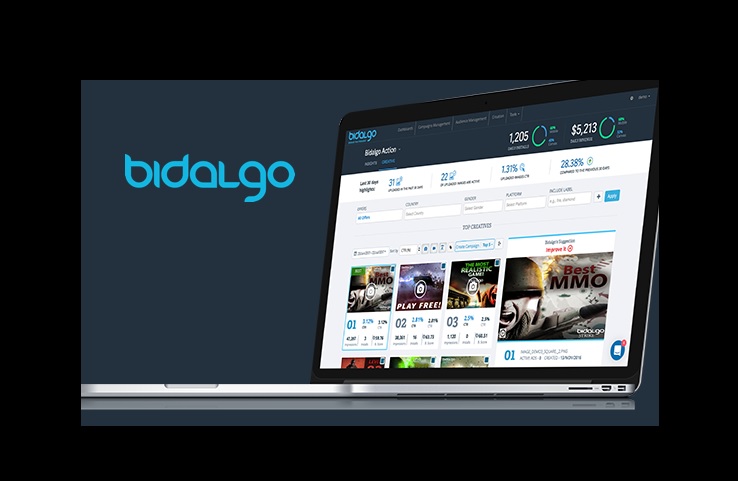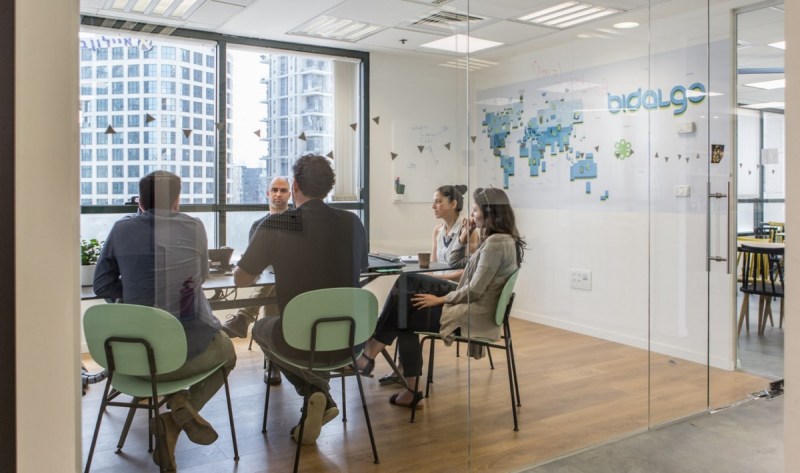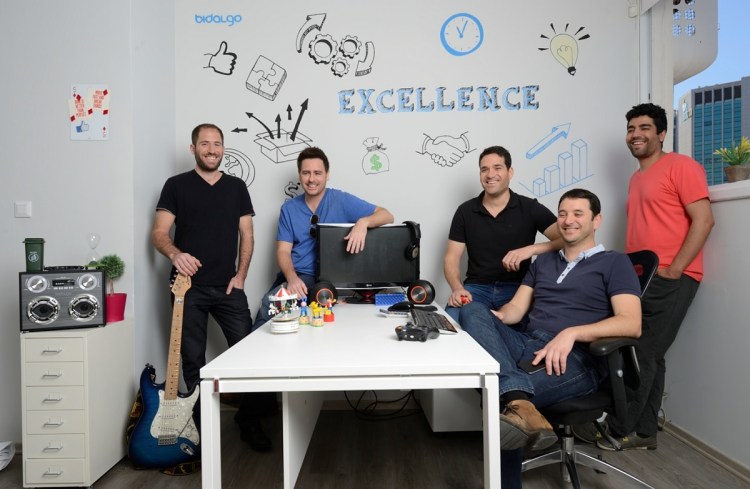Bidalgo has created an automated advertising platform for mobile app developers and publishers, and the Tel Aviv-based company expects to close 2017 with more than $250 million in revenue, up dramatically from $86 million in 2016.
Peli Beeri, CEO of Bidalgo, said in an interview with VentureBeat that the company has averaged $25 million in revenue for the past three months, and that means its revenue run rate is $300 million going forward. That means that it could generate $300 million in revenue in the next 12 months as it becomes a one-stop shop for those who buy mobile ads to promote their apps and games.
He said that an increase in clients, global expansion, and additions to the company’s services have fueled the growth. Bidalgo is an official marketing partner of Facebook, Instagram, Google, Snapchat, and Pinterest, and it also covers Apple Search Ads. Bidalgo’s AI-based algorithms automate and optimize the entire ad-buying process, including automatic creation of new ads and ad content managing how much to pay for each ad.
The company has delivered more than 25 million installs in the past year and generated more than $1 billion in revenue for app developers, based on the revenue from those installs. Bidalgo’s algorithms take approximately 2.5 million actions per day to optimize campaign performance on behalf of its clients.
June 5th: The AI Audit in NYC
Join us next week in NYC to engage with top executive leaders, delving into strategies for auditing AI models to ensure fairness, optimal performance, and ethical compliance across diverse organizations. Secure your attendance for this exclusive invite-only event.

Above: Bidalgo’s dashboard for app marketers.
“App marketing has become extremely complex, making it practically impossible for marketers to scale their apps all on their own,” said Beeri. “The market is up, but Bidalgo has offered a self-serve, one-stop shop to help app marketers acquire new users, and that has helped us grow faster than the market.”
Bidalgo started in Israel in 2010, and the company became a Facebook ad partner in 2011. It opened a San Francisco office in 2015. The company now has 80 employees, a number that is up 50 percent since the start of the year. Beeri anticipates the company will have 100 employees by the end of the year. Israel has a strong heritage in marketing and advertising technology, and Bidalgo gained momentum early by working with Israeli game and app companies, such as Playtika and Plarium.
Now, hundreds of advertisers — from early-stage app developers to Fortune 500 companies — rely on Bidalgo’s platform and services to scale their user acquisition programs. Bidalgo’s customers include Playtika, Plarium, Scientific Games, Wargaming, and dozens of other top grossing app developers.
Automation, which artificial intelligence software enables, helped Bidalgo gain traction with advertisers, Beeri said.
“It gave us an advantage in achieving results for user-acquisition managers,” Peeri said. “We started out small, but today, our customers are spending millions with us.”
Beeri said that the company provides a dashboard that serves as a way to view a bunch of campaigns across platforms, all at once.

Above: Bidalgo’s offices.
“Using Bidalgo’s AI solutions has allowed us to not only scale to millions of users with incredible return on ad spend but also understand what type of additional game content to produce and who our target audience is on a deeper level,” said Filippo De Rose, head of marketing and ad monetization at Pixelberry Studios, in a statement. “Bidalgo was one of our key partners in breaking into the top 20 grossing apps.”
One of the impediments is ad fraud, which has become a $1 billion problem.
“The ad networks have a problem with ad fraud, and that has shifted a lot of momentum back to the platforms like Google and Facebook,” Beeri said. “This comes back to the fact that we are fully transparent. You can log into our platform and see most of what is happening.”
Rivals include Nanigans and Smartly.io. By the end of 2018, Beeri hopes to target total revenues of $1 billion. Bidalgo is concentrating on getting a bigger share of ad spending. For a customer who might spend $10 million on all advertising in a year, Bidalgo might get 5 percent of the spending.
“Everyone says they have AI and automation,” he said. “It’s challenging to compete. But we are focused completely on this mobile-app market. We have a lot of things in the pipeline and plan to be even stronger going forward.”

